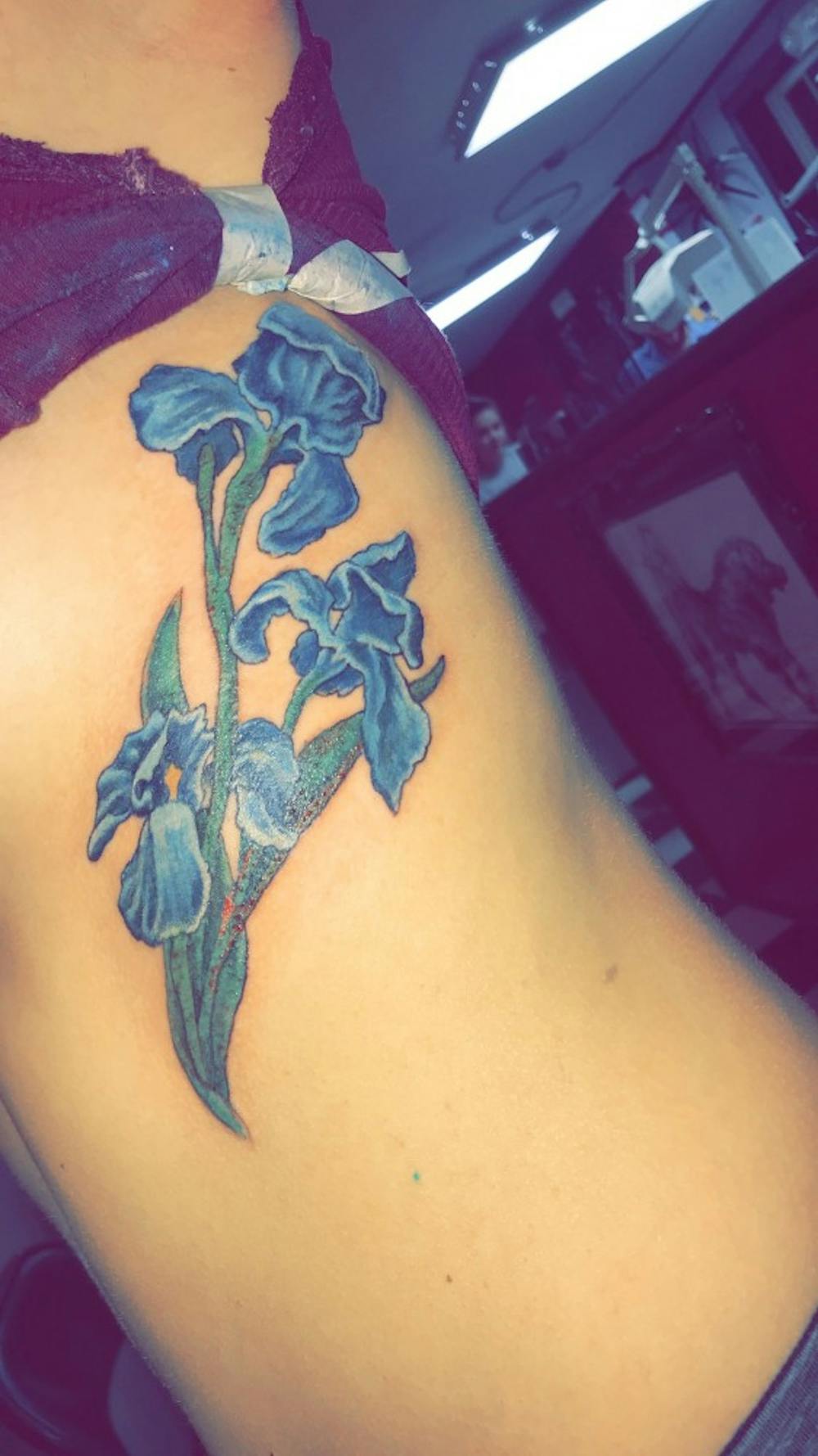The art of the tattoo: paying someone to stab you quickly and repeatedly with a needle to produce a permanent design on your skin. I've personally undergone this cruel and unusual punishment twice in effort to create art that will quite literally stay with me forever.
I've strategically placed my tattoos in places that can be easily concealed: my rib cage, which is covered every day by a shirt and my left wrist, which I can easily cover up with a watch to hide my rebellious art from society.
But is it really rebellious? Why does this stigma against tattooing exist?
When I was little, I would always hear the adults in my life discuss their distaste for tattoos and associate it with criminal activity, low class or, for lack of a better word, "trashiness." This association may come from the Christian belief that tattoos are looked down upon by God himself. The Bible states in Leviticus 19:28, "Do not cut your bodies for the dead or put tattoo marks on yourselves. I am the LORD."
As I grew up going to church, surrounded by people who agreed with this notion, I thought that I would never get a tattoo. But as tattoos became normalized within society, I began to see the beauty and art that they can represent.
In the future I see myself covered in much more body art, including a full tattoo sleeve on my right arm. The only things holding me back right now are financial restrictions and the fact that I'll soon be submerged in the workplace. I got my first tattoo when I was 18 and legally allowed to get one, regardless of parental consent. From then on, my family and peers began warning me of the impacts it would have on my future career.
It honestly felt silly to me that something like ink on my wrist could restrict my ability to work or potentially prohibit me from obtaining a career. Unless the tattoos portrays obscene or indecent content, I believe tattooing is innocent and displays creativity. However, some statistics show that this stigma is still somewhat present in the workplace.
A blog on skinfo.com portrays an infographic which discussed "the good, the bad and the ugly" of tattoos in the workplace. Some of the statistics show evidence of progression, including that 73 percent of people say they would hire staff that had visible tattoos and a whopping 94 percent of people would hire someone with tattoos.
Still, 42 percent of people of all ages feel that visible tattoos at work are inappropriate and 37 percent of human resources managers cite tattoos as the third most likely physical attribute that limits career potential.
The website stapaw.com which stands for "Support Tattoos and Piercings at Work" states on its home page, "Professionalism isn’t based on how you look, it’s based on how you interact and treat others."
And I agree. If employers choose to not hire someone because of their negative view of tattoos, they're missing out on talent that could potentially bring a positive impact to their business. Thirty-eight percent of people ages 18-29 have at least one tattoo. That's a lot of people who are entering or soon-to-be entering the workforce. It's vital that companies continue to reverse anti-tattoo policies and ideologies, or they'll have to exclude over a quarter of this generation's workforce.
Expressing myself through art on my body shouldn't lessen employers' opinions of me. I hope my tattoos show that I am expressive, confident and passionate enough about art to keep it with me forever.

